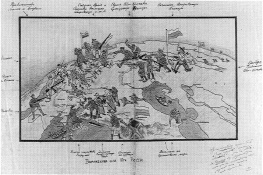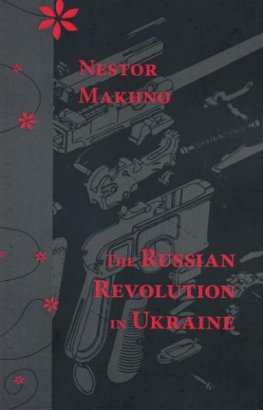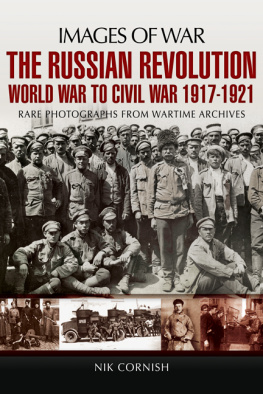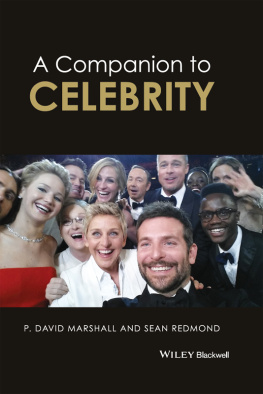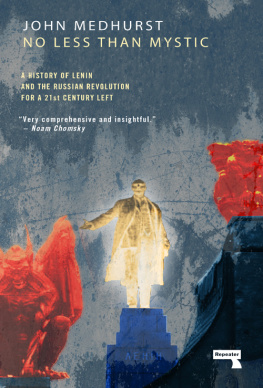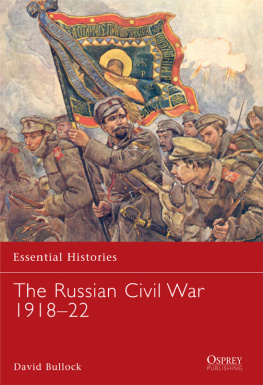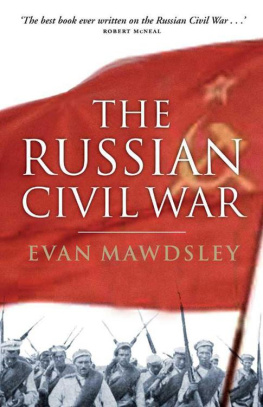1995 The University of North Carolina Press
All rights reserved
Manufactured in the United States of America
The paper in this book meets the guidelines for permanence and durability of the Committee on Production Guidelines for Book Longevity of the Council on Library Resources.
Publication of this book has been supported by generous grants from the L. J. Skaggs and Mary C. Skaggs Foundation and the Rutgers University Research Council.
Library of Congress Cataloging-in-Publication Data
Foglesong, David S.
Americas secret war against Bolshevism: U.S. intervention in the Russian Civil War, 19171920/David S. Foglesong.
p. cm.
Includes bibliographical references (p.) and index.
ISBN 0-8078-2228-0 (cloth: alk. paper)
1. Soviet UnionHistoryAllied intervention, 19181920. 2. United StatesForeign relations19131921. I. Title.
DK265.42.U5F64 1995
947.0841dc20 94-49528
CIP
99 98 97 96 95 5 4 3 2 1
ACKNOWLEDGMENTS
In the more than ten years that I worked on this book, many people helped me to complete the research, improve the writing, overcome obstacles, and carry through to the finish. I am glad to have an opportunity to give at least partial recognition to their invaluable assistance.
This project first took shape as a dissertation at the University of California, Berkeley. Diane Shaver Clemens offered constant moral support while guiding the dissertation to completion. Anthony Adamthwaite, Todd Foglesong, Linda Killen, Alan Lawrence, Victor Silverman, and Reggie Zelnik gave me the benefit of close readings and constructive criticism of dissertation chapters.
Several people generously assisted my research by providing access to materials in private collections. David Ray Thomson kindly gave me copies of letters his father, Consul Alfred Ray Thomson, wrote from Russia. Walt and Kay Hays graciously allowed me to examine their collection of the sermons of Rev. Walter G. Hays. I am especially grateful to Mary Wright Lampson, who sent me the diary her father, Joshua Butler Wright, kept as counselor of the American embassy in Petrograd in 1917, and who provided valuable insights about his views in numerous conversations and letters.
On research trips across the United States and to Russia I benefited from the assistance of many colleagues and archivists. In Moscow, Viktor Malkov, Genrikh Ioffe, Aleksandr Ushakov, and Aleksandr Volkov gave me helpful advice and generous aid with work in Russian archives. Of the many American archivists who facilitated my research, I am particularly indebted to Carol Leadenham of the Hoover Institution Archives, Martha Clevenger of the Missouri Historical Society, and Ben Primer and Nanci Young at the Seeley G. Mudd Manuscript Library in Princeton.
As I revised and expanded the manuscript, many friends and colleagues offered words of encouragement and provided helpful critiques of parts of the work in progress, including Michael Adas, Richard Debo, Carole Fink, Ziva Galili, Alice Kessler-Harris, John Long, Viktor Malkov, Norman Markowitz, Gail Owen, Ray Rocca, Norman Saul, Susan Schrepfer, and Gregg Wolper. I especially want to thank those who read the entire work and offered detailed suggestions for improvement: Lloyd Gardner, Robert Johnson, Warren Kimball, Dee Garrison, and William ONeill. My editor, Lewis Bateman, showed amazing patience with a first-time author and gave me much needed advice about tightening the prose. My copyeditor, Eric Schramm, went through the manuscript with great care and corrected numerous lapses.
As scholarly specialists will quickly recognize, I have been deeply influenced by several previous studies of Wilsonian policy toward Russia, particularly the work of William Appleman Williams, N. Gordon Levin Jr., and Lloyd C. Gardner. Perhaps less obvious is my enormous debt to Arthur S. Link for his editing of The Papers of Woodrow Wilson. Without his indefatigable labor on that series, my own work would have been impossible.
For financial support I am grateful to the MacArthur Interdisciplinary Group for International Security Studies at Berkeley; the Berkeley-Stanford Program in Soviet Studies; the Mellon Foundation; the Kennan Institute for Advanced Russian Studies; the Department of History at the University of California, Berkeley; and the Department of History at Rutgers University.
My parents, Robert and Jane Foglesong, stood loyally behind me through a very long education. They set high standards and provided emotional and financial support to help me try to live up to them.
Above all I am grateful to my wife, RoseMary. She supported me through graduate school, helped with the research, gave encouragement about the writing, endured my absences, and tolerated my preoccupation. Her hard work, sacrifice, love, and devotion sustained me to the end.
INTRODUCTION
Do you not know, Woodrow Wilson asked the citizens of Des Moines in September 1919, that the world is all now one single whispering gallery? The extension of the lines of commerce and the development of new methods of communication had drawn the peoples of the world close together in a global theater, thereby increasing the danger of contagion. All the impulses of mankind, Wilson explained, are thrown out upon the air and reach to the ends of the earth; quietly upon steamships, silently under the cover of the Postal Service, with the tongue of the wireless and the tongue of the telegraph, all the suggestions of disorder are spread through the world. Even America, despite its oceans of insulation, was vulnerable to the propaganda of disorder and discontent and dissolution throughout the world.
The global currents of trade and thought that made Bolshevism and other manifestations of disorder threats to American prosperity and tranquillity simultaneously inhibited American leaders ability to intervene to preserve order. The opinion of the world is everywhere wide awake, Wilson observed in December 1917. No representative of any self-governed nation will dare disregard it. In modern conditions, particularly in a total war for which governments needed the cooperation of whole societies, even authoritarian regimes had to be attuned to the very simple and unsophisticated standards of right and wrong of the plain people. This was especially true in the United States. As long as Americans believed that U.S. actions were motivated by high principle, they would support overseas action with zeal and enthusiasm. However, if they suspected U.S. policy served selfish ambitions or unprincipled objectives, the government would soon lose their support.
Wilson had long been acutely conscious of the moral force of public opinion. In his 1912 campaign for the presidency, Wilson appealed to the muckraking spirit of the time, calling for a purifying publicity to cleanse government of the corruption that thrives in secret places. We are never so proper in our conduct, he commented, as when everybody can look and see exactly what we are doing. In the following years Wilson extended the idea of moralizing publicity from domestic politics to foreign affairs. By 1916 he embraced a progressive vision of a new and more wholesome diplomacy that centered on repudiation of secret counsels and respect for the sovereign rights of all peoples. That peace position, combined with sweeping reform legislation, earned him crucial support from Progressives and Socialists for his reelection. As he led the United States into the world war and witnessed the way Russian appeals for peace without annexations or indemnities echoed around the world in 1917, Wilson grew ever more keenly aware of the need to publicize the idealistic principles for which America was fighting. Wilsons espousal of a new diplomacy culminated in his Fourteen Points speech of January 1918. Responding to the Bolsheviks peace proposals and their publication of the Allies secret treaties, Wilson declared that the day of conquest and aggrandizement is gone by, proclaimed that the world had to be made safe for peace-loving nations to determine their own institutions, and announced that in the future diplomacy should proceed always frankly and in the public view.

